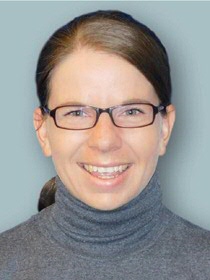ERC Starting Grant for four researchers of the Faculty of Science and Engineering
Dr. Marcos Guimarães, Dr. Julia Kamenz, Dr. Sandy Schmidt and Prof. Marthe Walvoort have received an ERC Starting Grant worth EUR 1.5 million from the European Research Council. They receive this grant for research into joining light and magnetism at the nanoscale; the molecular mechanism of the cell cycle clock; enzymes for novel nitrogen-nitrogen bond forming reactions and the impact of bacterial glycoproteins on the process of bacterial adhesion and infection.
With the Starting Grant, all four can set up their own research team to conduct research for five years.

Dr. Marcos Guimarães (Zernike Institute) | 2D-OPTOSPIN: Joining light and magnetism at the nanoscale
The fast development of modern information technology requires smaller devices consuming less energy. Magnetism provides an excellent route for energy-efficient devices, such as hard-disk drives, but they are often slow. Moreover, magnetic information has to be converted into electric currents for it to be transmitted, leading to more power consumption. In this project, Guimarães will use atomically-thin two-dimensional materials to combine highly-efficient magnetic devices with optical communication. Specifically, he will integrate magnetic devices with a laser that can convert magnetic information into optical information, i.e. light polarization. This project will pave the way for new generations of information technologies, addressing fundamental aspects along the way.

Dr. Julia Kamenz (GBB) | Cell cycle in vitro
Life on earth is rhythmic - from our heartbeat, to the day-night cycle, to the oscillations in animal populations. But what actually drives these clock-like behaviors? In this ERC project, Julia Kamenz will dissect the molecular mechanism of one of the most fundamental biological clocks: the cell cycle clock, which underlies and drives cell divisions. Errors during cell division can be detrimental and cause diseases, such as cancer. Kamenz will take a novel, engineering-inspired approach. Like a watchmaker, she plans to isolate the individual parts of the cell cycle machinery and systematically assemble them into a ‘ticking’ cell cycle clock. This approach will allow her to reveal the intricate interactions between each of the parts, providing novel insights into the biochemistry of cell division and contribute to the understanding of cell cycle regulation.

Dr. Sandy Schmidt (GRIP) | RECNNSTRCT
In the RECNNSTRCT project, Sandy Schmidt will reconstruct enzymes for novel nitrogen-nitrogen bond forming chemistry. Compounds containing nitrogen-nitrogen (N-N) bonds are highly important and frequently found in diverse pharmaceuticals, dyes, agrochemicals, synthetic materials, and cosmetics. However, traditional chemical procedures to synthesize these N-N bond-containing compounds are often difficult to realize, costly and environmentally unfriendly. Therefore, Schmidt aims to develop novel enzymes that can form these important N-N bond containing compounds in a more sustainable way, while tackling reactions that are difficult to realize by traditional chemical approaches and currently not feasible by enzyme catalysis. As such, RECNNSTRCT aims to substantially contribute to a greener chemical industry.

Prof. Marthe Walvoort (Stratingh) | STICKY SUGARS
In the STICKY SUGARS project, Marthe Walvoort will investigate the impact of bacterial glycoproteins on the process of bacterial adhesion and infection. Using the power of chemistry and enzymes, she will develop novel techniques to directly visualize the sugars on the outside of bacteria. In collaboration with researchers from the Groningen Biomolecular Sciences and Biotechnology Institute (GBB) and the University Medical Center Groningen (UMCG), she will also unravel the contribution of these sugars to bacterial infection. This project will lead to inspiring ideas in the field of novel antibacterial therapies based on attacking bacterial sugars.
ERC grants
ERC Starting Grants are awarded to early-career researchers with two to seven years of experience since completion of the PhD and a scientific track record showing great promise. The funding is provided for up to five years and will help individual scientists to build their own research teams and conduct pioneering research.
The European Research Council offers four core grant schemes: Starting, Consolidator, Advanced and Synergy Grants.
| Last modified: | 22 November 2022 12.35 p.m. |
More news
-
03 April 2025
IMChip and MimeCure in top 10 of the national Academic Startup Competition
Prof. Tamalika Banerjee’s startup IMChip and Prof. Erik Frijlink and Dr. Luke van der Koog’s startup MimeCure have made it into the top 10 of the national Academic Startup Competition.
-
01 April 2025
NSC’s electoral reform plan may have unwanted consequences
The new voting system, proposed by minister Uitermark, could jeopardize the fundamental principle of proportional representation, says Davide Grossi, Professor of Collective Decision Making and Computation at the University of Groningen
-
01 April 2025
'Diversity leads to better science'
In addition to her biological research on ageing, Hannah Dugdale also studies disparities relating to diversity in science. Thanks to the latter, she is one of the two 2024 laureates of the Athena Award, an NWO prize for successful and inspiring...
